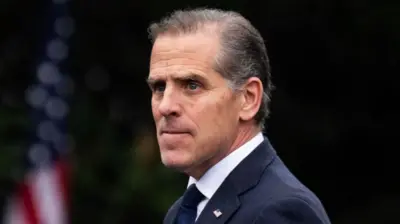We've updated our Privacy and Cookies Policy
We've made some important changes to our Privacy and Cookies Policy and we want you to know what this means for you and your data.
Profile: George Mitchell
Top Stories
George Mitchell is no stranger to troubled situations.
Nominated for the Nobel Peace Prize for brokering the 1998 Good Friday peace agreement in Northern Ireland, he also launched a Middle East peace initiative in 2001.
In 2006 he investigated the use of steroids and other banned substances in Major League Baseball - his findings destroyed the reputations of some of the game's biggest players.
Now he has stood down after two years confronting perhaps his biggest challenge - an effort to bring Israeli and Palestinian negotiators together for peace talks as US President Barack Obama's special envoy to the Middle East.
Announcing Mr Mitchell's resignation, Mr Obama said the diplomat had taken on "the toughest job imaginable" and been a tireless advocate for peace.
Top Stories
"His deep commitment to resolving conflict and advancing democracy has contributed immeasurably to the goal of two states living side by side in peace and security," Mr Obama said.
Democratic favourite
Mr Mitchell was born on 20 August 1933 in Waterville, Maine, the son of an Irish Catholic father who was a labourer and a Lebanese mother who worked in a factory.
He worked from an early age to put himself through university and law school, eventually joining the US Army where he served in counter-intelligence in Berlin.
At one time he dreamed of becoming mayor of his home town, but his career was to take him much further afield.
He entered politics as a staff assistant to Maine Senator Ed Muskie, then practiced law, including working as US Attorney, the highest-ranking federal prosecutor in Maine.
In 1980, he was appointed to fill Mr Muskie's seat, then was elected to two full terms.
During the Iran-Contra affair in 1987, Mr Mitchell famously asked Oliver North to "remember that it is possible for an American to disagree with you on aid to the Contras and still love God, and still love this country, just as much as you do".
Succinct and memorable remarks like these helped propel him into the national spotlight, and a year later he become the majority leader of the Senate.
He was voted the "most respected" member of the Senate six years in a row.
Top Stories
Seasoned diplomat
Upon his retirement from the Senate in 1995, then-President Bill Clinton appointed him special envoy to Northern Ireland.
He chaired all-party talks that led to a ceasefire by the IRA and set the scene for a reconciliation between the two sides that would have once been unimaginable.
His skill in brokering an agreement, much of it done in secret, earned him a reputation as a shrewd negotiator and someone who could be trusted by both sides.
Accepting his role as envoy to the Middle East, he said that his experience in Northern Ireland strengthened his conviction "that peace, no matter how difficult, could always be achieved".
"Conflicts are created, conducted and sustained by human beings; they can be ended by human beings," he said.
He left politics behind for a time in 2004 to become chairman at Walt Disney, after a bitter battle between its shareholders and former head Michael Eisner.
But his investigation into the use of steroids in baseball in 2006 put him back in the political spotlight.
His report, released in 2007, found widespread use of performance-enhancing drugs in the game and named some of its biggest and brightest stars.
Veteran trouble-shooter
Challenging vested interests and resolving intractable conflicts have been Mr Mitchell's speciality.
In 2000, Mr Clinton asked him to lead a high-level commission on the Israeli-Palestinian conflict. In that role, he won respect for being tough with both sides.
His final report recommended an end to Israeli settlement activity, and for Palestinians to prevent militant attacks and punish those responsible.
His appointment as Mr Obama's Middle East peace envoy came in the wake of a three-week Israeli offensive against Hamas militants which left more than 1,300 Palestinians dead. Thirteen Israelis were killed.
Speaking after accepting the appointment, Mr Mitchell said he did not "underestimate the difficulty" of his assignment.
Mr Mitchell immediately began a programme of frequent travel to the region. He spent almost two years holding proximity talks between Israeli and Palestinian negotiators, in which he acted as an intermediary between the two sides.
His efforts culminated in September in a short round of direct, White House-brokered talks between Israeli Prime Minister Benjamin Netanyahu and Palestinian President Mahmoud Abbas.
But the negotiations quickly fell apart after Israel declined to extend a moratorium on construction of settlements in the occupied West Bank.
Mr Mitchell was unable to push the two sides to restart the talks, and his travel to the region slowed significantly after December 2010.
Following his resignation, US Secretary of State Hillary Clinton paid tribute to his efforts, saying: "As well as anyone in his generation, George understands the slow, hard work of diplomacy, the art of compromise and the indispensable role of American leadership in the world."
Top Stories
More to explore
Most read
Content is not available








